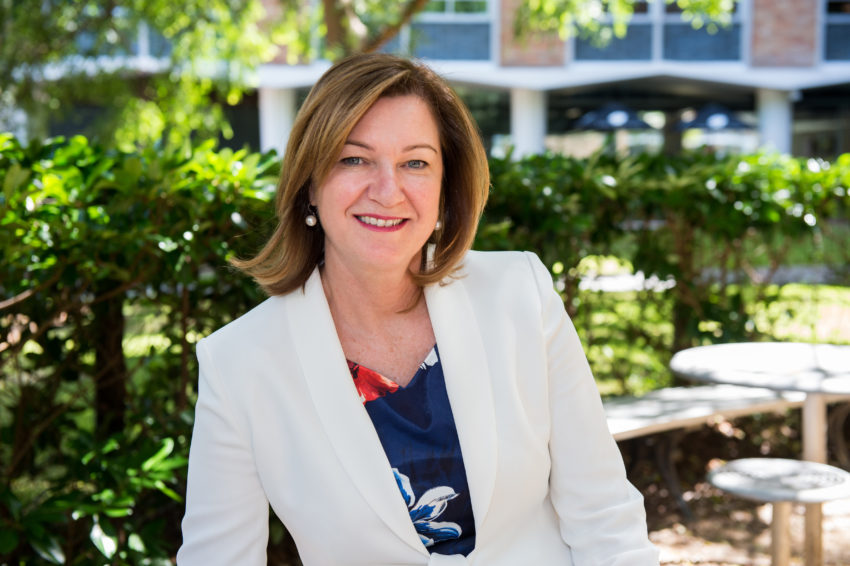Lyn Lewis-Smith is Chief Executive Officer of Business Events Sydney, the organization in charge of securing international business events that deliver economic, strategic and social benefits for Australia and global communities. Lyn devotes considerable energy to her passion for women’s rights and was Co-Chair of the Host Steering Committee for the Global Summit of Women Sydney 2018.
As a destination, you bid for conferences. But the way you do this has changed… Can you elaborate on this?
Ten years ago, there was a low level of sophistication when it came to bidding. To simplify, cities could win events off the back of their beauty. Then things changed in terms of how global events operate and the people shaping them. International organizations now really understand why they select one host city over another for their next global meeting. Our industry has also championed this change – we have triggered conversations around what we have to offer to the world as destinations, and what the world has to offer to us.
We always take the Olympic Games bidding model as an example of what we are required to do now – a strategic alignment with our Government’s key growth target areas, and the identification of events that can add the most value. These events might not be the biggest in the world, but they are strategically important to us in many other ways. In Sydney’s home state of New South Wales, we have an A$80-billion infrastructure pipeline – one of the largest in the world at the moment. To support this agenda, we look at everything around building cities – whether it be architecture, urban design, or water waste. We’re bidding for events in that space because New South Wales and Australia are at the forefront of this globally: we have so much knowledge to share from our Private Public Partnership (PPP) funding models, to new applications of technology, and using data science as a way to solve traffic congestion and social housing, for instance.
That’s the mindset we’re operating in now and that’s where the complexities in bidding are coming from: you have to have a vision, a purpose, a business case and then the accessibility, infrastructure, and supply chain back into it.
When it comes to association conferences in particular, have you identified trends?
In Sydney, the decisions to bid for a conference are based on our expertise in specific areas. But we’re only going to attract, secure and hold events if our locals are at top of their game in Australia, and in the world. For us, it’s a matter of seeking them out in university faculties, in the fintech world, and in our startup community.
I am always discovering new things about Sydney or what Sydney is good at. We’ve got industry specialists in infrastructure, health, medtech, fintech (with cybersecurity) and advanced manufacturing. We’re creating and exporting devices that makes us a leading player on the world stage. And then you’ve got the sciences, life sciences, the engineering…
For associations, we can create value even without them asking. We have transformed our whole convention precinct, where the new state of the art International Convention Centre Sydney lies; we have gone from the traditional DMO to a professional services organization, specializing in international business events. We have heavily invested in engaging stakeholders, local, state and federal government, the not-for-profit sector and academia. Now, I like to think that we can sit with any decision maker in the world and bring value to the table.
You’ve recently participated in the Global Summit of Women, which you were instrumental in getting to Sydney. We understand this event was really dear to your heart…
Known as Davos for women, the Global Summit of Women took place in April. An annual summit dedicated to accelerating women’s advancement in the global economy, it brought 1,200 global leaders to Sydney from across the public, private, and non-profit sectors in more than 65 countries to share creative strategies and practical working solutions.
I made it my mission to personally secure that event. I’m passionate about developing women into leadership positions and their economic empowerment. I wanted to bring Indo-Pacific women and our Indigenous communities together, and we helped them attend the Summit. I also wanted to have the opportunity to step into the shoes of people that I convinced to bid for these kinds of events, and the international clients that deliver them, so I got the best of both worlds. It was the most rewarding and valuable thing I’ve ever done in my career, and my team is richer for the experience, having gained so much competitive advantage doing that.
Hosting events like the Global Summit of Women is a catalyst for greater economic empowerment of Australian women – it shone a spotlight on underperforming areas, eliciting tangible commitments from our leaders to change the status quo. A recent EY report suggests that tapping into women’s global potential could be the equivalent of having another one billion people in the workforce, driving economic growth around the world. That says it all.
This interview was written by Boardroom Chief Editor Rémi Dévé (editor@boardroom.global)
